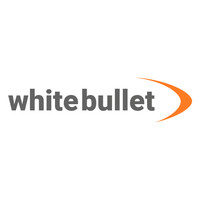How Brands are Paying to Risk Their Own Safety in Lockdown Piracy Boom
by on 9th Apr 2020 in News


CEO of White Bullet Solutions, Peter Szyszko (pictured below), writes exclusively for ExchangeWire about how the increased streaming has lead to a rise in piracy, and explains why brands must remain vigilant.
As the world gets used to living behind closed doors, some companies find themselves perfectly positioned. Supermarkets, for all their challenges, are suddenly taking all the trade pubs and restaurants recently enjoyed. And meanwhile Disney's launch of its Disney+ service, spearheaded by its long-awaited Star Wars series The Mandalorian, Baby Yoda and all, could not have hit at a better time.

Peter Szyszko, CEO and founder, White Bullet Solutions
Subscription video consumption in general has grown dramatically under lockdown, with Netflix and other services seeing a massive rise in concurrent streaming hours. In some instances, streaming companies have resorted to lowering the quality of their streams in order to meet demand while reducing server load and managing bandwidth issues.
Unfortunately, as we adjust to living life even more online than usual, internet pirates are benefitting as well. In the US and UK, White Bullet's Q1 2020 data shows an increase of more than 50% in page views of the top pirate websites since the last quarter - growth that likely owes itself to increased hunger for free content as people spend more time at home with fewer distractions.
The sharp rise in page views naturally means more advertising will be displayed to those new visitors in search of pirated films, TV and other entertainments. And more eyeballs means more money for the pirate websites and the ad networks who place those ads.
White Bullet has counted more than six billion ad impressions on pirate websites in Q1 alone. We will be producing an estimate of how much ad revenue is going to pirate websites in the weeks to come.
There have been loud and clear calls from the advertising industry for ad companies to treat pirate websites as they treat other publishers of illegal and inappropriate content, and simply stop serving them ads. Nonetheless, there has been a 163% increase in branded ads on high-risk pirate websites since December 2019 - even before global lockdowns began. For premium, household-name brands, the increase over that period stands at 150%, which ought to make this a matter for major concern.
Brands hold all the power and a share of the responsibility here. Intermediaries are not likely to stop placing premium brand ads on pirate websites voluntarily. Why would they, when they get paid for all ad impressions? The only way ad-funded piracy will stop is for brands to lean heavily on the companies in their ad supply chain and tell them not to serve ads on pirate websites. Ad companies will listen to the brands that ultimately pay them.
The problem is that brands do not have good information about when their adverts appear on pirate websites. White Bullet already provides this data to many brands, helping them identify such instances of non-compliance by their ad companies. And if the advertising and marketing business does not self-regulate in this way, regulators will make good on their threat to step in.
Brands have a duty to become and remain compliant for many reasons:
- Ads persistently appearing on websites that contain offensive or illegal content cause damage to their own brand.
- Ads displayed on high-risk websites fund content thieves, cybercriminals and real-world crime.
- Ads on high-risk websites hurt vulnerable consumers, due to the ubiquitous data-miners, browser-hijackers, phishing thieves and malware that are proven to dwell on those sites. White Bullet's latest data shows that nearly 20% of pirate and high-risk websites host malware and other fraudulent activity, much of it designed to acquire private information that is passed in turn to cybercriminals.
- The solution, for brands and for the internet ecosystem at large, requires a combination of elements to work together. Brands must demand compliance from their digital ad partners to specifically stop ad placement on pirate websites. Brands need to track their partners’ compliance through access to up-to-date transparency data and evidence of when their ads appear on pirate websites.
- Across Europe, the authorities that seek to stop ad funding to criminal websites are well aware of these issues. In this country, the Trustworthy Accountability Group (TAG) and the UK Intellectual Property Office (IPO), among others, already track non-compliant brands and their ad companies, and have launched recent enforcement programmes designed to put a stop to these practices.
- Brands need to ensure they are on the right side of this problem. The outside world may have gone quiet, but behind all those misplaced ads, things are getting very active indeed. Let’s not allow the stealth criminals of the web to become further beneficiaries of the lockdown economy.
AdvertisingBrand SafetyStreamingVideo








Follow ExchangeWire